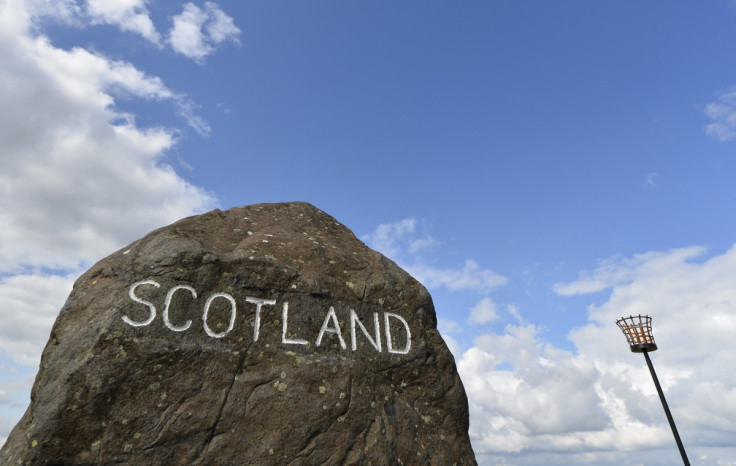Scottish Independence: UK Government Goads SNP to Produce 'Realistic Costs'

Britain's government has told the Scottish National Party to produce "realistic analysis" of the true cost of independence if members are going to continually dismiss a raft of economists' and researchers' warnings about the impact of independence.
Chief Treasury Secretary Danny Alexander will highlight on 30 April that the SNP has made "over-optimistic assumptions" about oil revenues and will ask Scottish ministers to examine "in detail the figures that illustrate the benefits of the UK and the cost of independence".
"The Scottish government's white paper contained lots of promises but nothing credible to back it up," Alexander will say.
"People are beginning to realise that they can't answer even the most basic questions.
"It's damning that the only credible paper we've seen from the Scottish government is their finance minister's secret leaked paper warning about the cuts and tax rises needed to pay for declining oil revenues and an ageing population.
"If their promises seem too good to be true, it's because they are. This week I will also be challenging some of the myths of independence - people need to know the facts.
"The problems of declining oil revenues and an ageing population cannot simply be wished away - but the broad shoulders of the UK can help absorb them."
At the same time, the UK Treasury will unveil its most comprehensive analysis of the cost of Scottish independence.
"The analysis will be in more detail than ever before the impact of having to absorb the higher spending and lower tax caused by declining oil revenues, an ageing population, the Scottish government's uncosted policy pledges and the set-up costs of independence in a much smaller budget", Alexander will say.
Economic Forecasts
Earlier this month, ratings agency Standard & Poor's warned the markets that an independent Scotland could suffer a financial meltdown similar to that which decimated Iceland in 2007.
According to a note by S&P, if Scotland decided to end its 307-year union with England, the country's banking system would immediately come under strain from the hefty assets on its balance sheet, and possibly forfeit the support of the rest of Britain.
"We note a possible parallel here with Iceland, where in 2008 the national deposit insurance scheme could not honour claims when the country's outsized banking system failed," said S&P.
"The willingness and ability of the Scottish government to support its banking sector appears challenging."
In 2007, Iceland's banking system's assets stood at 880% of the country's GDP. Currently, Scotland's banking system's assets stand at a huge 1,254% of its GDP.
Meanwhile, the National Institute for Economics and Social Research (NIESR) also said that an independent Scotland would immediately have to repay £23bn (€28bn, $39bn) worth of debt in its first year.
According to NIESR's macro-economist Angus Armstrong, Scotland's debt is set to hit £1.7tn by 2015-16 and therefore the debt repayment calculation is based on the Scottish National Party's repayment pledge at a 1.65% interest rate.

Concerning oil, the Institute for Fiscal Studies also claimed that Scotland would borrow more money if voters decided to break away from the rest of Britain, as dwindling oil revenues and the short-term benefits of the UK recovery would fail to make it onto its balance sheet.
The UK's fiscal position is set to improve over the next five years more than previously forecast, but Scotland could miss out on that in the event of independence, stated the IFS, citing data from the Office for Budget Responsibility (OBR).
Salmond's Retort
"The fact is Scotland is one of the wealthiest countries per head in the world and is more than capable of being an economically successful independent country - the fiction is coming from Mr Alexander and his colleagues in the Tory-led No campaign," said Salmond's office, in response to Alexander's impending comments.
"Scotland has the financial resources to be a successful independent nation.
"In each of the last 32 years, tax receipts per person in Scotland have been higher than the UK as a whole, and in 2011-12 it was in a stronger fiscal position than the UK to the tune of £4.4bn, or £824 per person.
"Scotland would have had the opportunity to spend more, tax less, invest in an oil fund, and still borrow proportionally less than the UK. Independence will provide Scotland with the opportunity to take spending decisions which better reflect the needs and desires of the Scottish people and the Scottish economy."
© Copyright IBTimes 2025. All rights reserved.






















